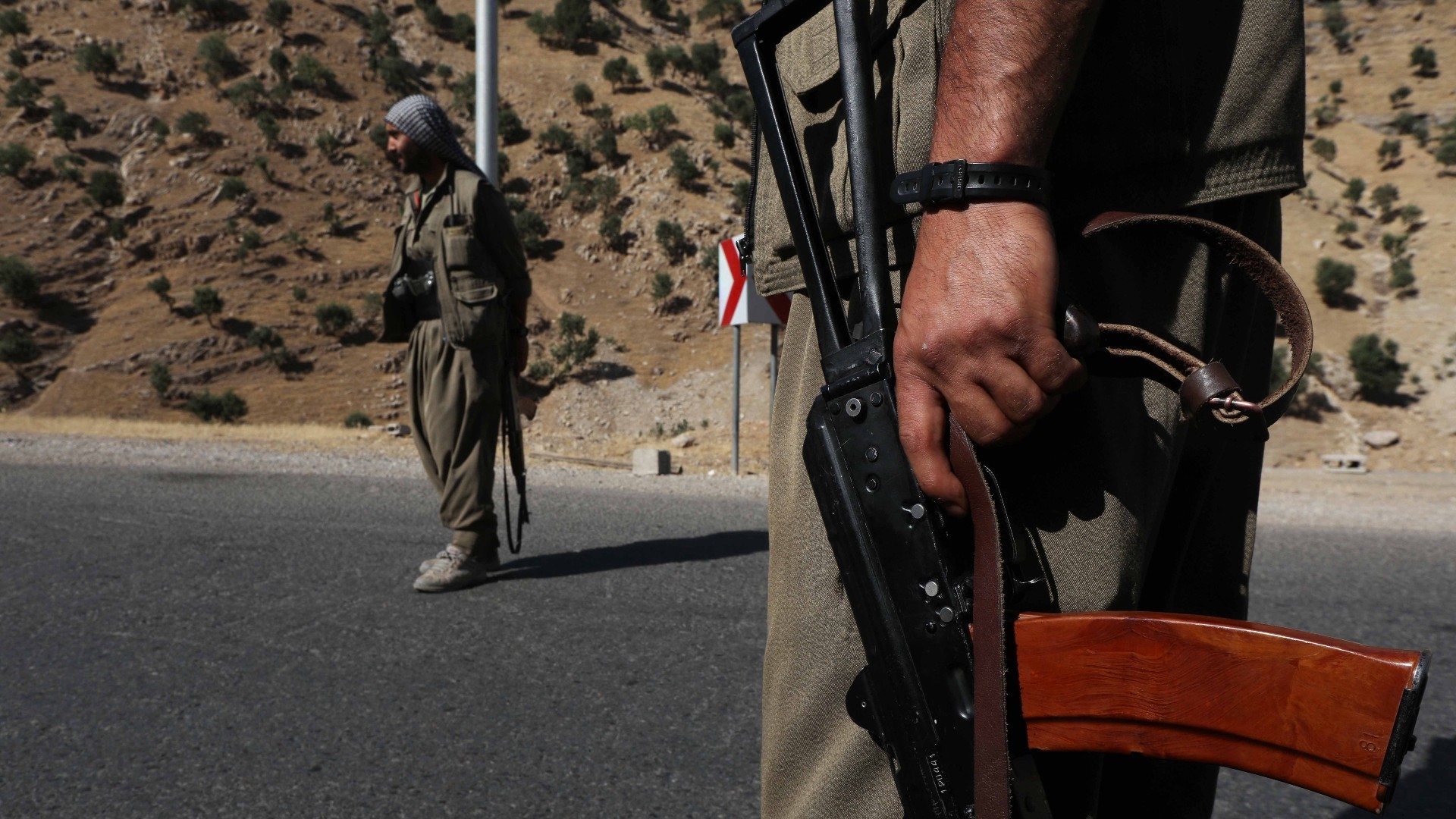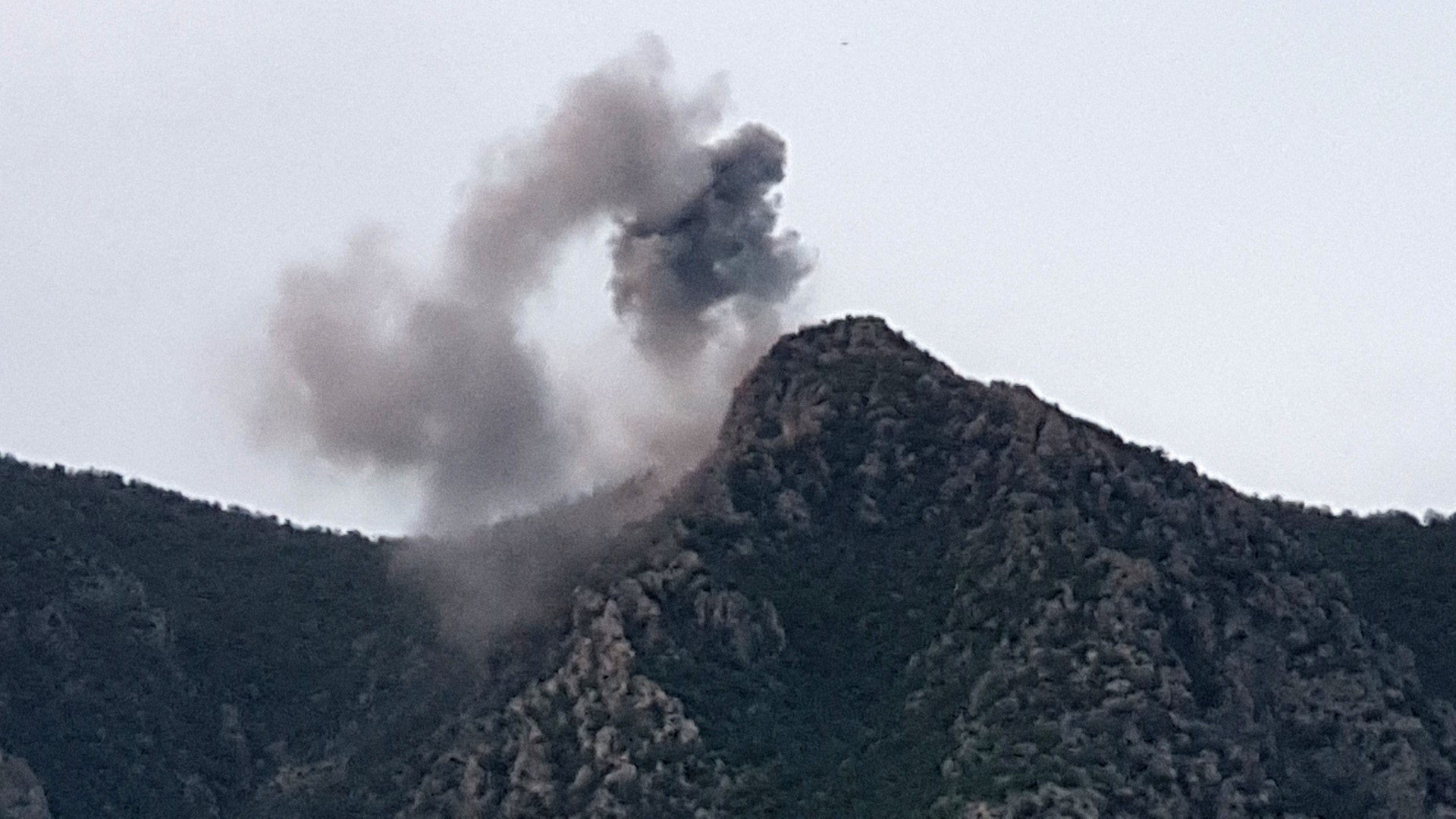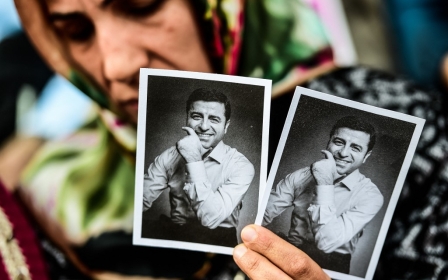Inside Turkey's operation to capture a senior PKK fighter in Iraq

The hum of Turkish drones overhead has become a common and foreboding sound for Kurdish fighters in northern Iraq.
But for Ramazan Gunes, a suspected senior member of the Kurdistan Workers’ Party (PKK), the threat did not come from above.
Last month, Turkish intelligence announced it had captured Gunes in northeastern Iraq’s Sulamaniyah, part of the semi-autonomous Kurdistan region, and brought him back to Turkey.
Gunes was reportedly snatched off the streets by undercover Turkish agents.
Though Turkish operations in northern Iraq against the PKK have become routine, this one attracted attention. Turkey rarely captures its targets alive, usually preferring to kill them with drone strikes.
New MEE newsletter: Jerusalem Dispatch
Sign up to get the latest insights and analysis on Israel-Palestine, alongside Turkey Unpacked and other MEE newsletters
The PKK, a Kurdish separatist group, has waged a conflict against the Turkish state since the 1980s, involving violence that has killed tens of thousands of people. Turkey, the US, and the EU have designated the PKK as a terror group due to the deadly attacks it has carried out on civilians.
In recent years, the nature of this warfare has changed. Turkey has used more sophisticated technology and weaponry to push the group further south of the Turkish-Iraqi border.
Turkish intelligence agency MIT said Gunes, believed to be a member of the PKK’s special forces, has been active within the group since 2008.
He was involved in 12 different attacks, MIT said, including a highly deadly one in Hakkari’s Cukurca in October 2011, which left 26 members of the Turkish security forces dead.
MIT estimates he was involved in attacks that killed around 60 people overall.
The PKK has not commented on his case.
Tracked for a year
Sources familiar with Gunes’s case told Middle East Eye that he had been tasked with a job in Sulamaniyah lower than he might have expected due to disagreements with the PKK leadership in recent years.
The sources added that Turkey has been closely following developments in the province because it has been used by PKK as a base to hide members who need “maintenance”, a euphemism for troublesome operatives sent somewhere relatively inactive.
Sulaymaniyah is largely controlled by the Patriotic Union of Kurdistan (PUK), which is led by the Talabani family and is one of the two major parties that rule Iraqi Kurdistan.
Ankara believes the PUK has a more permissive relationship with the PKK than the Kurdistan Democratic Party (KDP) in Erbil, which is led by Turkey’s close allies in the Barzani family.

The sources said MIT tracked Gunes, whose code name is Sores, for a year through its local agents as he constantly changed address in Sulaymaniyah city, collecting information on his contacts and relationships.
Since the 1990s, the Turkish government has been cooperating with the Erbil-based Kurdistan Regional Government (KRG) and specifically the Barzani family against the PKK, which has its headquarters in northern Iraq's Qandil mountains.
In recent years, Ankara has established an extensive network of outposts in Iraq near the Turkish border, pushing PKK militants south, which has increased tensions between the armed group and KRG authorities.
In the first 10 months of 2022, Turkey used drone strikes to kill 23 senior members of the PKK and the YPG, a Kurdish group Ankara insists is the PKK’s Syrian wing.
However, last year it also captured some PKK members in northern Iraq’s Makhmour and Sinjar and brought them alive to Turkey. These targets were generally in charge of the PKK’s logistics and ammunition operations in the regions they were operating in.
Shifting capabilities
Sources familiar with Turkey’s counter-PKK operations told MEE that the Turkish intelligence and military’s operational capabilities on the ground are blossoming, allowing them to now choose whether to take PKK targets alive or not.
They added that MIT tends to favour capturing PKK operatives who have key logistics and operational importance, seeking to extract information that can help the agency map the group’s structure in Iraq and Syria.
Gunes’s case is particularly important because the PKK is constantly changing its logistical and operational network in the areas it is in, making it difficult for Turkish intelligence to “track, detect and neutralise” its members.
Though capture and rendition operations are increasing in Iraq, Turkey tends to avoid them in northern Syria due to the US and Russian presence there.
'In the fight against PKK, MIT has focused on neutralising the main backbone that manages the organisation'
- Hakan Fidan, Turkish intelligence chief
Both Moscow and Washington have friendly ties with the YPG, and the Syrian Kurdish group is the United States’ principal partner against the Islamic State group in northeastern Syria.
Turkish intelligence chief Hakan Fidan has credited Turkey’s success against the PKK last year to MIT constantly changing and renewing its methods and structure.
“In the fight against PKK, MIT has focused on neutralising the main backbone that manages the organisation by using intelligence disciplines such as human intelligence, signal intelligence, electronic intelligence, image and satellite intelligence, and UAV capabilities as a whole,” Fidan wrote in a MIT report of 2022.
“Within the framework of the operational capabilities gained, many organisational elements, including the perpetrators of terrorist acts in our country, were captured abroad and brought to our country.”
Middle East Eye delivers independent and unrivalled coverage and analysis of the Middle East, North Africa and beyond. To learn more about republishing this content and the associated fees, please fill out this form. More about MEE can be found here.





